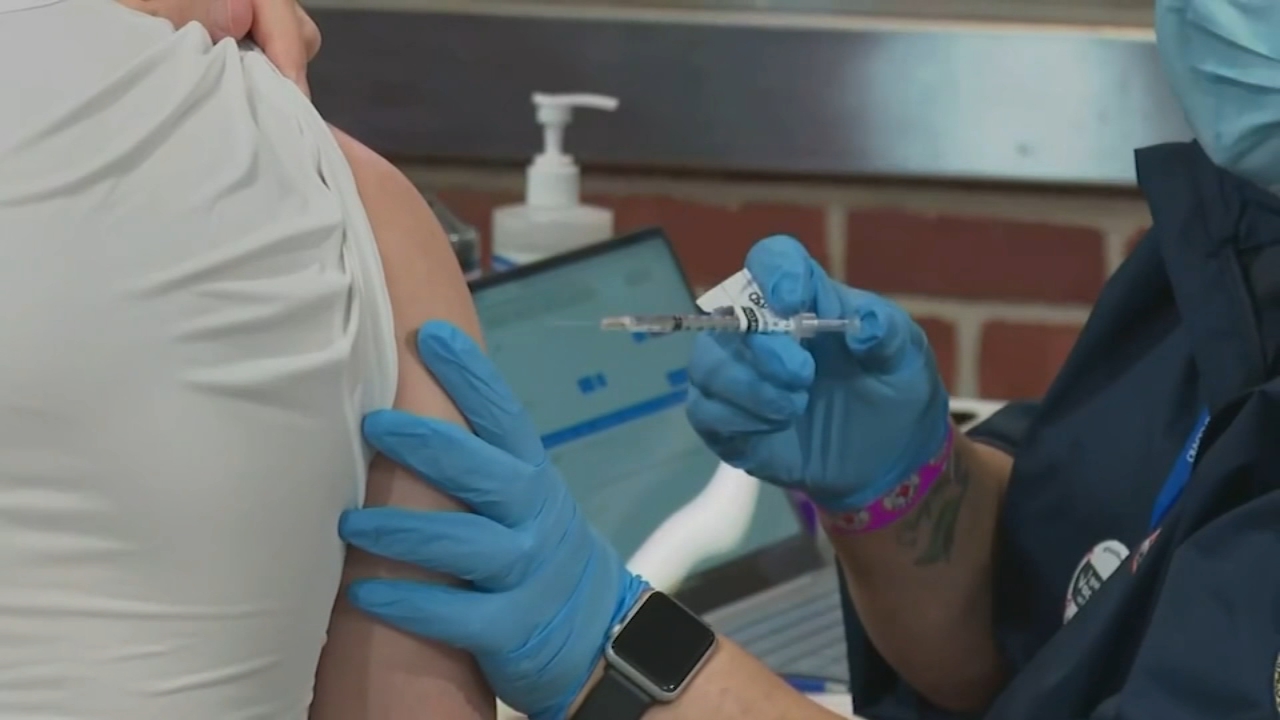2 Alaska health care workers remain enthusiastic about Pfizer vaccine, even after allergic reactions


ALASKA (KGO) -- UCSF received 975 doses of the Pfizer vaccine Wednesday, which were quickly administered to frontline workers.
Emergency room doctor, Tomas Diaz, received one of the first doses.
RELATED: NFL to invite COVID-19-vaccinated health care workers to Super Bowl 55
"I don't know until getting the vaccine how much of a relief it would be to feel a little bit safer. To feel like we're on the path to getting out of this pandemic even though there's still a long way to go," said Dr. Diaz.
Thousands of health care workers across the country continue to receive Pfizer's vaccine successfully.
But two days into the U.S. rollout, came the first reports of serious adverse reactions.
A health care worker in Juneau, Alaska, with no history of allergies, had an anaphylactic reaction during the 15 minute observation period after the shot. The woman was hospitalized and given epinephrine by IV.
VIDEO: Emotional day for John Muir's frontline workers who received first doses of COVID vaccine

Dr. Lindy Jones, from the hospital in Juneau, described her symptoms. "Short of breath, her heart rate was elevated, and she had a red flushed rash over her face and torso."
The patient is now stable and being monitored.
"She was still enthusiastic that she got the vaccine," said Dr. Lindy.
A second vaccine recipient in Alaska had a less serious allergic reaction - eye puffiness, light headedness, and a scratchy throat. He was treated with epinephrine, Pepcid and Benadryl, according to Bartlett Regional Hospital.
RELATED: Here's where you might stand on the COVID-19 vaccine priority list
Both incidents were reported to the CDC's Vaccine Adverse Event Reporting System (VAERS) database.
"The data would say we can have every confidence in this vaccine, and it is so important to fighting this pandemic," said Dr. Chris Colwell, Chief of Emergency Medicine at Zuckerberg San Francisco General Hospital.
"If you're going to have a severe reaction, it's generally fairly quickly after getting the shot, usually within the hour and often within the first 10-15 minutes of it," he said.
Dr. Colwell points out that severe allergic reactions are rare. There have been two other cases, both reported in the UK, in people with a history of allergies.
"It is true that those reactions can be serious, and should be taken seriously, but is extremely uncommon and still represents a far lower risk than this virus," said Dr. Colwell.
If you have a question or comment about the COVID-19 vaccine, submit via the form below or here.
Get the latest news, information and videos about the novel coronavirus pandemic here
RELATED STORIES & VIDEOS:
- Map: CA counties that can, can't reopen under new rules
- COVID-19 risk calculator: The safest and most dangerous things to do this holiday season
- Updated number of COVID-19 deaths, cases in Bay Area
- COVID-19 Help: Comprehensive list of resources, information
- California EDD: The most commonly asked questions we get about unemployment and PUA
- Health experts urge flu shots in effort to avoid 'twindemic'
- How to tell the difference between seasonal allergies and coronavirus symptoms
- Here's which mask is better to protect from COVID-19
- First COVID-19 vaccine volunteers in US describe experience as Bay Area launches vaccine trials
- From salons to dinner parties: Experts rate the risk of 12 activities
- Coronavirus origin: Where did COVID-19 come from?
- What is a COVID-19 genetic, antigen and antibody test?
- What will it take to get a COVID-19 vaccine and how will it be made?
- What does COVID-19 do to your body and why does it spread so easily?
- Here's how shelter in place, stay at home orders can slow spread of COVID-19
- Coronavirus Timeline: Tracking major moments of COVID-19 pandemic in San Francisco Bay Area
- COVID-19 Diaries: Personal stories of Bay Area residents during novel coronavirus pandemic
- Coronavirus Doctor's Note: Dr. Alok Patel gives his insight into COVID-19 pandemic








